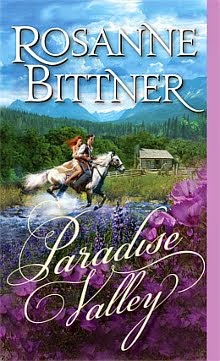Back
in the “old days” of 80’s romance, when the label “romance”
sent female readers (and probably some male readers) swooning, the
primary plot of our stories usually involved a young virgin who was
ignorant of the power and influence of the tall, dark, handsome,
experienced (and sometimes dangerous) hero. She fainted at the very
thought of being at his mercy and her heart and body being overtaken
by the alpha male who always knew how to handle a woman. The
“innocent virgin” in these stories conjured up all kinds of
scenarios, and led to steamy, usually forbidden sex throughout or
near the end of the story.
Of
course, as time marched on, society demanded we write much stronger
heroines who could stand up to the skilled, magnificent heroes, but
for the most part, those heroines continued to be young and not
always experienced in the ways of love and the consummation of that
love. She remained wide-eyed and a bit frightened of allowing the
hero to “make a woman” of her. This basic theme kept evolving and
changing over the years as sexual behavior and what was allowed in
our books also changed - and writers became bolder in describing the
act of having sex. The young heroine was no longer always the
inexperienced beauty who fainted at a man’s touch. We grew into tv
programs like “Sex and The City,” and our heroines weren’t
always even virgins any more. But there was still that “big, bold
hero meets beautiful, young heroine” theme.
Through
all of this one thing remained the same for writing “romance.”
90% - 100% of the time, the heroine was young, somewhere between 16
and 22. She was always slim and pretty and usually “feisty” and
independent. And she makes sure the hero knows she can “live
without a man.” The hero is usually older, but almost never beyond
30. He must be “buff,” with distinct pecks and abs and glutes and
hard biceps. He must have a square jaw, a couple-day old beard
growth, a straight nose and high cheekbones and dark, penetrating
eyes. And he, too, has to be young – mostly 20 to 30 years old, and
of course, he can “live without a woman.”
Today,
romance is finally beginning to move away from the constant “young
and beautiful and perfect” characters, and publishers are beginning
to recognize there is a market in writing the older couple. Some
publishers are beginning to actively seek stories involving the older
hero and heroine. I have always believed there is a market for the
older couple, even in romance. There is nothing more beautiful (to
me) than sex between two people, married or not, who know what it’s
all about – know what they want and how to do it right – who are
solid in their confidence (whether having sex with someone new, or if
they have been together for years and know each other’s bodies
intimately) – a man and woman who know what “turns on” their
partner – and who (as in most of my books) are so familiar with
each other that one can hardly breathe without the other and each
usually knows what the other is thinking.
I often write older couples, and the love scenes they share are absolutely the most satisfying for me to write. It isn’t just about lust and sexual satisfaction. They aren’t just out to “get laid” and having sex and naming body parts they want their partner to toy with. They are having sex with their emotions, their memories, their hearts. There is nothing sexier than a man “wanting” to be inside a woman because it’s one way of showing her how much he adores her and wants to please her – and he once again claims her for himself and reminds her she belongs only to him. At the same time, the woman takes her man out of real love, not just because she wants to “feel good.” She wants HIM to feel good, too, and he does because he knows she wants him with every fiber of her being and because they have been having sex for years with only each other. They are still finding new ways to please each other.
I often write older couples, and the love scenes they share are absolutely the most satisfying for me to write. It isn’t just about lust and sexual satisfaction. They aren’t just out to “get laid” and having sex and naming body parts they want their partner to toy with. They are having sex with their emotions, their memories, their hearts. There is nothing sexier than a man “wanting” to be inside a woman because it’s one way of showing her how much he adores her and wants to please her – and he once again claims her for himself and reminds her she belongs only to him. At the same time, the woman takes her man out of real love, not just because she wants to “feel good.” She wants HIM to feel good, too, and he does because he knows she wants him with every fiber of her being and because they have been having sex for years with only each other. They are still finding new ways to please each other.
Couples
who are totally familiar with each other and know all the little
things each enjoys – know where and how each other wants to be
touched – and who have such a history together that memories become
as much a part of sex as does the act of sex itself can be incredibly
sexy. Those memories and idiosyncrasies about each other’s thoughts
and needs can also lead to some wonderful banter, even during the act
of sex. I used a lot of banter in the love scenes between Jake and
Miranda Harkner in my Outlaw Hearts series. That banter, and being
able to laugh with and at each other, only makes the sex even
“sexier.” Believe me, as you get older, there are plenty of
things to laugh about. If you can’t joke about the changes that
occur with ageing, where is the fun in still being together and still
“getting it on?”
Teasing
and laughter can be just as fulfilling and tantalizing as sex between
two younger people with perfect bodies. Recognizing things have
changed and all that perfectness has changed with it – and being
comfortable with that – only shows a love that runs far deeper and
is much more beautiful than wild sex between two young and perfect
people just out of lust and a desire to have a climax. It runs far
deeper than how long a man lasts or how perky the woman’s breasts
are. When those things don’t matter anymore, that’s real love.
And truly realizing that if and when one or the other dies – or if
part of the danger in the story is that one or the other might be
killed - and if that loss would mean far more than losing a sex
partner, then your story truly becomes a LOVE STORY. When losing your
partner means losing part of your heart and soul – and literally
losing a part of your very being, your very spirit – that’s the
kind of love story that becomes a memorable tear-jerker.
The days of the young,
fainting heroine are long gone. Women today want strong heroines who,
in some instances, seem even stronger than the hero, even when they
ARE virgins. But I believe it’s important that in certain ways the
hero remains in control and can always match the heroine in skill and
passion. Of course, to keep the “sexiness” alive in advanced
years, we still tend to keep our hero and heroine in good shape. It’s
kind of a “must” for romance. But we still need to be realistic
about certain changes. The fact that (in my Outlaw books) Jake
understands that things have “changed down there” for his wife
and enjoying sex takes “special handling” because of those
changes, only makes the reader think, “Awwww, look how much he
loves her and cares that she still enjoys having sex with the man she
loves.” They love Jake even more for how much he cares about his
wife’s pleasure. And when she is pleased, that turns him on and
only helps him enjoy it more himself. After all, men change, too, and
they need to find ways to keep their own sexual stimulation as virile
and satisfying as possible.
I suppose some of this stems from being older myself. I understand things that younger writers haven't even experienced yet and have no idea (or simply don’t believe) their sex lives will change, whether they like it or not. They don’t see how much more beautiful a love story between an ageing hero and heroine can be, just because of what they have been through together and how hard they try to keep their sex life vibrant and alive.
I suppose some of this stems from being older myself. I understand things that younger writers haven't even experienced yet and have no idea (or simply don’t believe) their sex lives will change, whether they like it or not. They don’t see how much more beautiful a love story between an ageing hero and heroine can be, just because of what they have been through together and how hard they try to keep their sex life vibrant and alive.
I’ve
written many books that involved older couples. In WILDEST DREAMS,
the hero and heroine meet at a young age and they go through many
trials and tribulations that only strengthen their love until in old
age it remains beautiful and fulfilling and memorable. In my SAVAGE
DESTINY series and my OUTLAW HEARTS series, the same thing takes
place, and I go into the lives of the hero and heroine’s children
and even grandchildren – yet the primary hero and heroine remain
vital and active and the main highlight in every single book of the
series. By the end of the series the readers are totally, completely
attached to the hero and heroine, who remain memorable to them for
years after finishing the series.





























